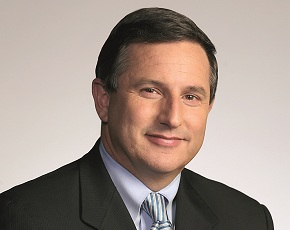Oracle is pushing its combined hardware and software product range as a way for CIOs to avoid costly consultant fees.
Speaking in the UK, Oracle president Mark Hurd, said open systems were more costly because they were not pre-integrated.

"The services industry has benefited from non-proprietary IT," he said. "You have to balance best-of-breed with the cost and complexity of doing it."
He said the business should not have to worry about IT infrastructure. For instance, with more processing running in the cloud, Hurd said, the infrastructure was actually easier for the customer.
"You don't care what the server, storage or operating system (OS) is," he added.
According to Mark Hurd, the Exadata line is giving businesses greater cost performance.
Oracle in Europe
In an interview with Computer Weekly, Dermot O'Kelly, country manager, UK and Ireland at Oracle said that UK and west European Oracle customers are dealing with "austerity budgets."
He said in engineered systems, Oracle has done the integration work. So from a user's perspective "all the integration work, having to check standards, and looking at different data sources goes away," he said.
It offers a "way of managing a tight or reducing budget in a way that allows customers still to be innovative, and divert budget to where they can gain competitive advantage."
O'Kelly said Oracle had made "enormous investment in particular applications for particular industries."
On Oracle's cloud strategy, he said:"We can provide the applications, the platform, and the infrastructure in a cloud service. Many like the idea of cloud, but are not comfortable with data going outside the firewall but we can provide the applications where the customer is most reassured, as well as at Oracle.
Interview by Brian McKenna
At the Oracle OpenWorld 2012 conference, the company showed an Exadata system using 26TB of memory. Hurd said the machine was the biggest in-memory computer in the world.
Referring to the company's latest financial results, Hurd said sales in Oracle's hardware business – the engineered system – had doubled. And the company expects to spend $5bn in research and development (R&D) this current fiscal year.
Cloud business
After years of procrastination, it appears Oracle is finally accepting cloud computing.
At Oracle OpenWorld the company announced Oracle 12C, the company's first cloud database.
At Oracle, cloud computing means systems built on top of its Fusion middleware, Hurd said.
"Cloud means all applications built on common middleware layer and all applications available as modules," he said. This means businesses can choose which pieces of Oracle software to deploy and CIOs are able to select whether to run the modules in their own datacentres or on Oracle's cloud-based infrastructure.
The company now provides infrastructure-as-a-service (IaaS) in the cloud or as an on-premise, private cloud.
"Today, Oracle is best-of-breed for everything we do. We are open, we fit in heterogeneous environments. And our systems integrate together. The key advantage to customers is that we provision the server, the storage and infrastructure through vertical integration," Hurd said.
Oracle is starting to discuss these options with businesses and the public sector. He added: "We will have proposals for customers this year for IaaS. Our cloud is an open cloud and you have the option to move data to a private cloud or Amazon."
He does not regard Oracle's cloud infrastructure as a differentiator.
"The core differentiation is in our IP, our database and our middleware," Hurd said. These software components will be the main differences between what Oracle offers as IaaS and alternatives like Amazon and Microsoft Azure.
The public sector
Hurd said the software business is doing pretty well in Europe, apart from the public sector, where spending has been down due to austerity measures.
However, the company's database is widely used in the public sector. Hurd claimed Oracle can help its public sector customers lower costs, since its database offers compression technology to reduce storage requirements.





